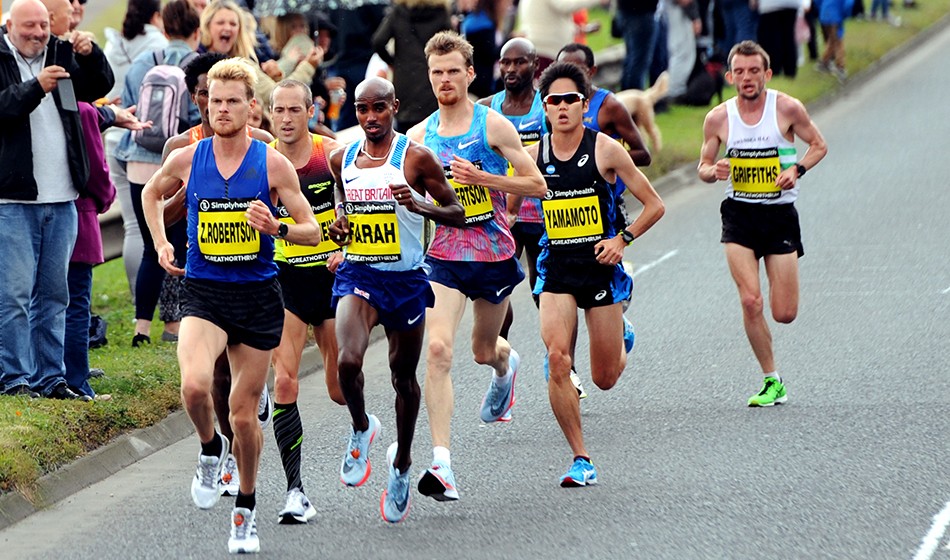
Kiwi runner claims he was injected with EPO instead of a Covid vaccine in a Kenyan hospital but anti-doping officials dismiss his excuses
Zane Robertson, the New Zealand marathon, half-marathon and 10km record-holder, has been given an eight-year ban after testing positive for testing positive for Erythropoietin (EPO) and providing false documentation in his defence.
The 33-year-old claims he sought a Covid vaccination in Kenya but was instead given the blood-boosting EPO drug instead.
Robertson moved to Kenya with his twin brother Jake aged 17 to try to make it as distance runners. He went on to run national records of 27:28 for 10km, 27:33.67 for 10,000m, 59:47 for the half-marathon, 2:08:19 for the marathon.
His 10,000m best came when finishing 12th in the Rio Olympic final where he broke Dick Quaxs long-standing New Zealand record, although that mark was later improved by brother Jake.
Zane Robertson at Rio 2016 (Mark Shearman)
At the Commonwealth Games he finished third in the 5000m in 2014, whereas at the Tokyo Olympics he was 36th in the marathon.
The positive test came at the Great Manchester Run in May last year. On that occasion, Jake Robertson won the race in 28:06 with Zane finishing 11th in 29:03 before subsequently announcing his retirement at the start of this year.
When Robertsons samples from that day tested positive, he accepted EPO was in his body but claimed he visited a medical facility in Kenya for a Covid vaccination but was given EPO instead. He tried to provide documentation to back this up but anti-doping investigators decided it was false paperwork.
The anti-doping verdict read in part: Drug Free Sport New Zealand (DFSNZ) alleged that Mr Robertson breached Rules 2.1 (Presence of a Prohibited Substance or its Metabolites or Markers in an Athletes sample) and 2.2 (Use or Attempted Use by an Athlete of a Prohibited Substance or Prohibited Method) of the Sports Anti-Doping Rules 2022 (SADR) as a result of an Adverse Analytical Finding (AAF) following his participation in the Great Race in Manchester in May 2022. 3.
DFSNZ also alleged the athlete subsequently breached Rule 2.5 (Tampering, or Attempted Tampering, with any part of Doping Control by an Athlete or Other Person).
Mr Robertson is not contesting the breaches nor is he offering evidence to support a reduction in the period of ineligibility.
Zane Robertson at Glasgow 2014 (Mark Shearman)
Notably, the verdict from DFSNZ added: Mr Robertson accepted the presence of EPO but asserted that the prohibited substance had entered his system through no fault or negligence, or no significant fault or negligence, on his part, and therefore he wished to be heard regarding sanction.
Mr Robertson filed evidence to support his assertion. Specifically, Mr Robertson claimed that he had attended a Kenyan medical facility seeking a Covid 19 vaccination but was instead treated for Covid 19, which included the administration of EPO. He also claimed that he had told the attending Doctor that he was an athlete and could not be treated with a substance that was on the prohibited list. His evidence was that he had not realised it was a second Doctor who administered the medication, so he did not repeat his request not to be treated with a prohibited substance.
Mr Robertson supported his evidence with sworn affidavits from two Kenyan doctors, hospital notes, a hospital report and a witness statement from a Kenyan detective corroborating his claims.
DFSNZ responded to Mr Robertsons evidence with expert evidence from Dr Stephen Ritchie who commented on the clinical implausibility of the medical treatment allegedly received by Mr Robertson. DFSNZ also provided a statement about investigations it had made following Mr Robertsons assertions, and a witness statement from the Legal Officer at the Anti-doping Agency of Kenya (ADAK) who had made inquiries for DFSNZ into Mr Robertsons claims.
ADAKs statement included an attached letter from the Vice President of the medical facility Mr Robertson claimed to have attended which stated that Mr Robertson was not administered EPO at the facility, that he had not attended the facility on the alleged date, that of the two doctors he claimed had treated him, one was a laboratory technician and the other was not employed at the facility, that the medical notes were not generated at the facility and the patient number on the notes was not Mr Robertsons.
DFSNZ alleged that Mr Robertsons statements and supporting documents included falsified documents and false testimony which if proven or not contested, amounts to a breach of Rule 2.5 (tampering).
After accepting the ruling, it means he now cannot compete again until September 2030.
The full decision and details of the case can be found here.
